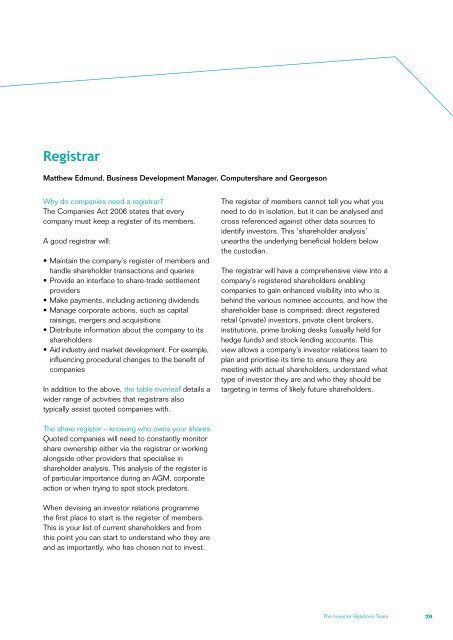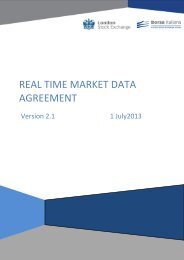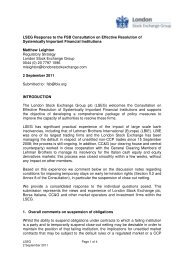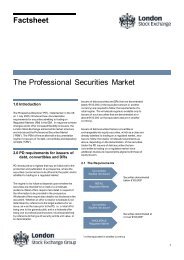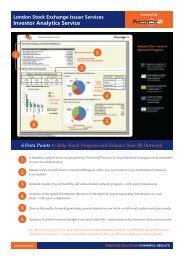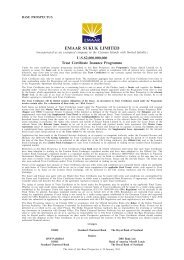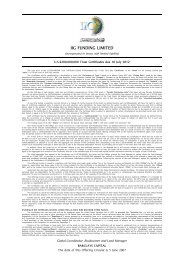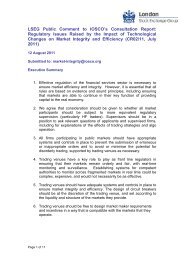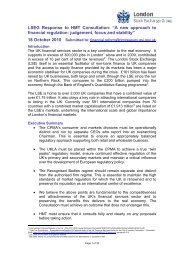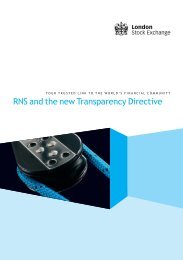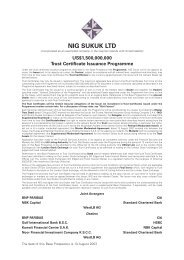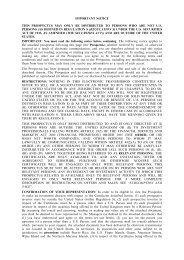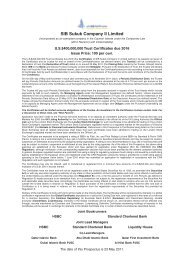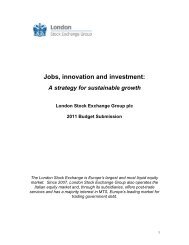Investor Relations - A Practical Guide - Investis
Investor Relations - A Practical Guide - Investis
Investor Relations - A Practical Guide - Investis
You also want an ePaper? Increase the reach of your titles
YUMPU automatically turns print PDFs into web optimized ePapers that Google loves.
Registrar<br />
Matthew Edmund, Business Development Manager, Computershare and Georgeson<br />
Why do companies need a registrar<br />
The Companies Act 2006 states that every<br />
company must keep a register of its members.<br />
A good registrar will:<br />
• Maintain the company’s register of members and<br />
handle shareholder transactions and queries<br />
• Provide an interface to share-trade settlement<br />
providers<br />
• Make payments, including actioning dividends<br />
• Manage corporate actions, such as capital<br />
raisings, mergers and acquisitions<br />
• Distribute information about the company to its<br />
shareholders<br />
• Aid industry and market development. For example,<br />
influencing procedural changes to the benefit of<br />
companies<br />
In addition to the above, the table overleaf details a<br />
wider range of activities that registrars also<br />
typically assist quoted companies with.<br />
The register of members cannot tell you what you<br />
need to do in isolation, but it can be analysed and<br />
cross referenced against other data sources to<br />
identify investors. This ‘shareholder analysis’<br />
unearths the underlying beneficial holders below<br />
the custodian.<br />
The registrar will have a comprehensive view into a<br />
company’s registered shareholders enabling<br />
companies to gain enhanced visibility into who is<br />
behind the various nominee accounts, and how the<br />
shareholder base is comprised: direct registered<br />
retail (private) investors, private client brokers,<br />
institutions, prime broking desks (usually held for<br />
hedge funds) and stock lending accounts. This<br />
view allows a company’s investor relations team to<br />
plan and prioritise its time to ensure they are<br />
meeting with actual shareholders, understand what<br />
type of investor they are and who they should be<br />
targeting in terms of likely future shareholders.<br />
The share register – knowing who owns your shares<br />
Quoted companies will need to constantly monitor<br />
share ownership either via the registrar or working<br />
alongside other providers that specialise in<br />
shareholder analysis. This analysis of the register is<br />
of particular importance during an AGM, corporate<br />
action or when trying to spot stock predators.<br />
When devising an investor relations programme<br />
the first place to start is the register of members.<br />
This is your list of current shareholders and from<br />
this point you can start to understand who they are<br />
and as importantly, who has chosen not to invest.<br />
The <strong>Investor</strong> <strong>Relations</strong> Team 29


